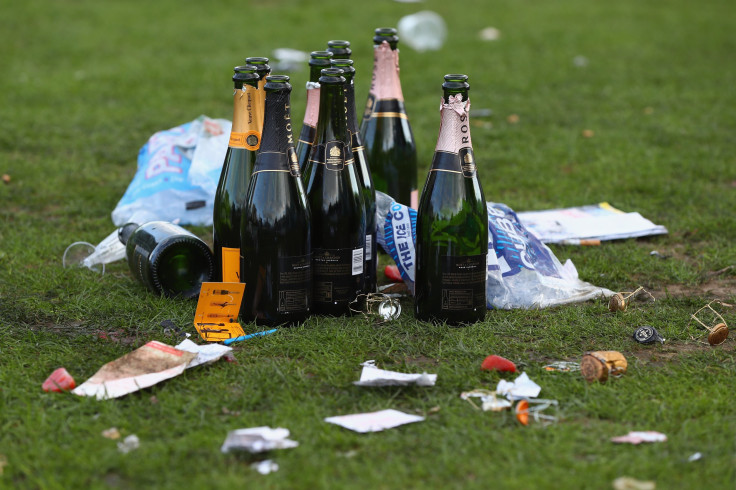How To Evade An Alcohol Ban? Build An Island In The Sea

A group of enterprising New Zealanders got creative in their ways to go around a local liquor ban during the New Year and built a sand island in the coastal waters of the North Island's Coromandel peninsula Sunday afternoon.
The group built the structure at low tide in the Tairua estuary on the peninsula and installed a picnic table and an icebox for drinks, the BBC reported. When the tide came back in, they cracked open some beers and enjoyed the fireworks.
Locals joked that they were in "international waters" and thus exempt from an official liquor ban.
Pictures of the island were posted in a local closed Facebook group, Tairua ChitChat, by David Saunders and showed the group's location, surrounded by boats, a kayaker, and a paddle-boarder.
A ban on public drinking was enforced in Coromandel over the New Year period and those violating would face a fine of $180 USD ($250 AUD).
Eastern area commander Inspector of the local government area Waikato, John Kelly said police weren't aware of the attempt to circumvent the liquor ban. "That's creative thinking - if I had known that I probably would have joined them," Kelly said when asked about the sand island by stuff.co.nz.
Saunders, from whose account the images were posted, told the BBC: "It was great to see some Kiwis having a bit of fun."
However, a well-known local community organizer said it was time for a change after a number of arrests over the New Year period for the last few years. They were dealing with drunk teens. That's not what they are there for. That's what parents are there for. The police and St John were getting frustrated with the result and said it has to change," Watts told the New Zealand Herald.
"We want no arrests, no one hurt, no injuries and it's a fun, safe place with no dramas. That's what people want. It's a positive community."
A local government act enforcing the liquor ban enabled the police to search vehicles without notice, provided there was at least one clearly marked sign indicating the ban. If there was no ban signage present, police needed to first provide an opportunity for a person to remove their vehicle from the area.
New Zealand’s Newshub reported that the police in Whangamatā, the community that Watts belonged to, were even tipping out sealed cans which they'd purchased only half an hour earlier.
Under the 1982 United Nations Convention on the Law of the Sea, depending upon where the temporary sand structure was located in the intertidal zone, it could even lie within the country's internal waters, over which greater authority can be retained by law enforcement. "Territorial waters" within 12 nautical miles of the coast remains subjected to a state's sovereignty. However, the law enforcement authorities did not seem to mind the legalities much in the case and the island was seen intact even on Monday morning.
© Copyright IBTimes 2024. All rights reserved.





















